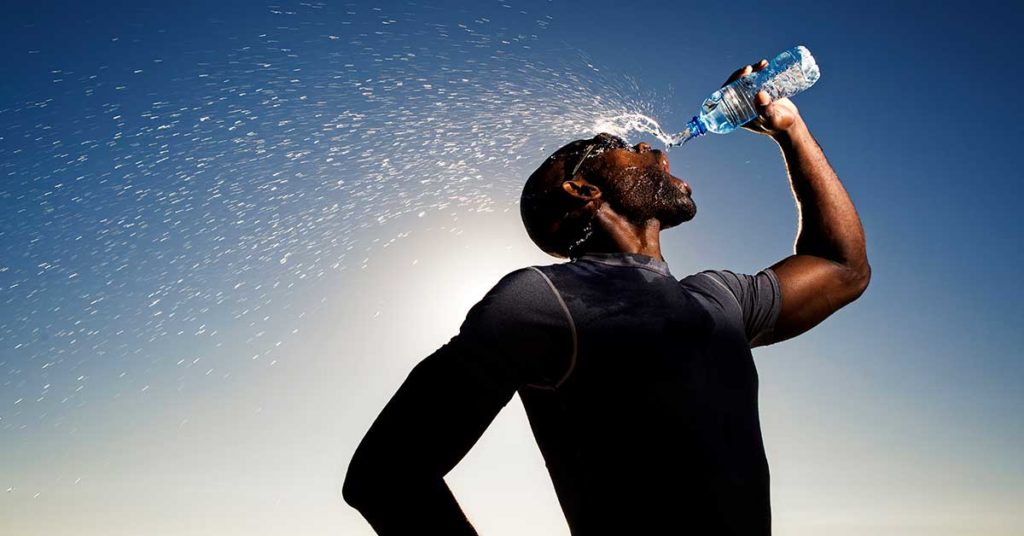Hydration for Athletes and Executives
Stay Ahead of the Game: How Performance Hydration Boosts Athletic Performance
Stay Ahead of the Game: How Performance Hydration Boosts Athletic Performance
In the world of sports and athletics, performance is key. Competitors are constantly looking for ways to gain an edge over their opponents and optimize their performance levels. One crucial yet often overlooked factor in achieving peak performance is hydration. The importance of adequate hydration cannot be overstated, as it directly affects an athlete’s physical and mental abilities. In this article, we will explore how performance hydration boosts athletic performance and provides athletes with a competitive advantage.
Understanding Performance Hydration
Performance hydration refers to the process of maintaining proper fluid balance in the body before, during, and after physical exertion. Adequate hydration involves more than simply drinking water; it requires a strategic approach that takes into account an athlete’s individual needs, environmental conditions, and the demands of their sport.
Water is the primary component of human bodily fluids and is essential for numerous physiological functions, including temperature regulation, nutrient transport, joint lubrication, and waste removal. During athletic performance, the body loses water through sweat, leading to dehydration if not properly replenished. Dehydration can have significant detrimental effects on an athlete’s performance, including decreased energy levels, impaired stamina, reduced strength, and increased risk of injury.
The Impact of Dehydration on Athletic Performance
Dehydration significantly compromises an athlete’s performance by causing physiological and cognitive impairments. As an athlete loses water through sweat, their blood volume decreases, which hampers the delivery of oxygen and nutrients to muscles. This reduction in blood volume also affects the body’s ability to dissipate heat, leading to increased core body temperature and a higher risk of heat-related illnesses such as heat exhaustion or heatstroke.
Moreover, when an athlete becomes dehydrated, their heart has to work harder to pump blood, leading to an increased heart rate and decreased cardiac output. This places additional stress on the cardiovascular system and reduces an athlete’s overall endurance. Dehydration also impairs thermoregulatory mechanisms, affecting an athlete’s ability to cool down efficiently, resulting in diminished performance and increased fatigue.
Cognitively, dehydration can lead to impaired concentration, decreased attention span, and reduced reaction time, all of which are critical factors in most sports. Decision-making abilities, coordination, and motor skills can also be negatively impacted by dehydration, potentially leading to errors and suboptimal performance.
The Benefits of Performance Hydration
Proper hydration not only helps athletes avoid the negative consequences of dehydration but also provides several performance-enhancing benefits. Here are some of the key advantages of maintaining optimal hydration levels:
Improved Endurance
Optimal hydration supports cardiovascular function and blood circulation, ensuring an adequate oxygen supply to working muscles. This, in turn, improves an athlete’s endurance, allowing them to perform at a high level for longer durations. Proper hydration also helps prevent an excessive increase in heart rate, enabling athletes to sustain intensity throughout their performance.
Enhanced Power and Strength
Hydration plays a role in maintaining optimal muscular function. When muscles are adequately hydrated, they can generate maximum force and power output. Well-hydrated muscles are less prone to cramps, strains, and fatigue, allowing athletes to push their boundaries and improve their strength.
Improved Cognitive Function
The brain depends on proper hydration to function optimally. Staying well-hydrated enhances cognitive abilities such as focus, alertness, concentration, and reaction time. This is particularly important in sports that require quick decision-making and precise motor skills.
Enhanced Nutrient Delivery
Hydration is essential for delivering nutrients to working muscles efficiently. When the body is adequately hydrated, nutrients such as carbohydrates, electrolytes, and oxygen can be transported effectively via the bloodstream, optimizing energy production and maintaining overall performance levels.
FAQs
Q: How much water should athletes drink during physical activity?
A: While water needs vary based on factors such as body weight, duration of exercise, and environmental conditions, a general guideline is to aim for about 7-10 ounces of fluid every 10-20 minutes during physical activity.
Q: Are sports drinks better than water for athletes?
A: Sports drinks can be beneficial for athletes engaged in prolonged or intense exercise lasting more than one hour. Unlike plain water, sports drinks contain electrolytes and carbohydrates that help replenish energy stores and enhance fluid absorption.
Q: How can athletes stay hydrated before a competition?
A: Pre-competition hydration is vital. Athletes should start their hydration routine at least 2-4 hours before the event, aiming to consume around 16-20 ounces of fluid. Additionally, avoiding alcohol and caffeine, which have diuretic effects, is recommended.
Q: Can an athlete drink too much water?
A: Yes, overhydration, also known as hyponatremia, can have serious health consequences. Athletes should aim for a balanced approach, consuming fluids based on their individual needs and sweat rate, and consider replacing electrolytes when engaging in prolonged exercise.
In Conclusion
Performance hydration plays a crucial role in athletic success. Maintaining optimal hydration levels before, during, and after physical exertion enhances endurance, power, cognitive function, and nutrient delivery. It is essential for athletes to develop a personalized hydration strategy that considers their specific needs and the demands of their sport. By staying ahead of the game with performance hydration, athletes can unlock their full potential and gain a competitive advantage.

